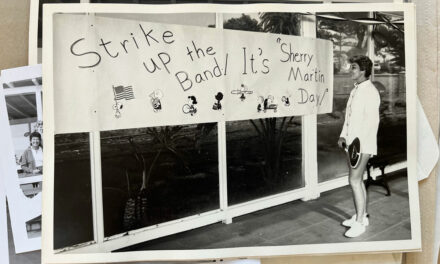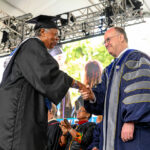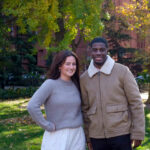
Making Powerful Literary Connections
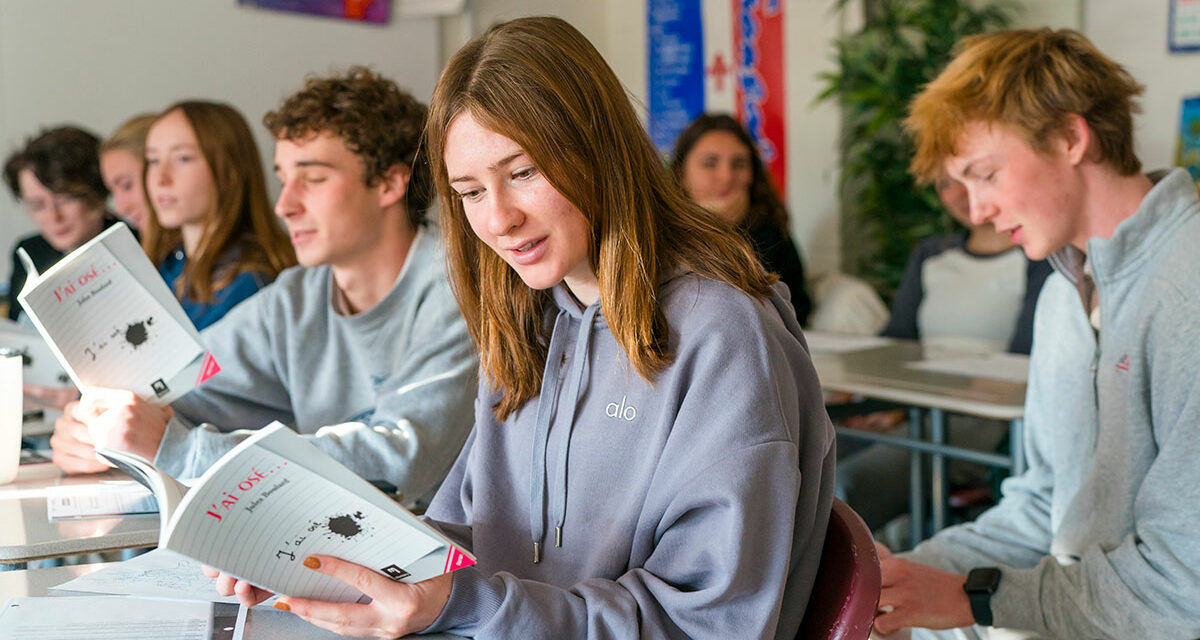
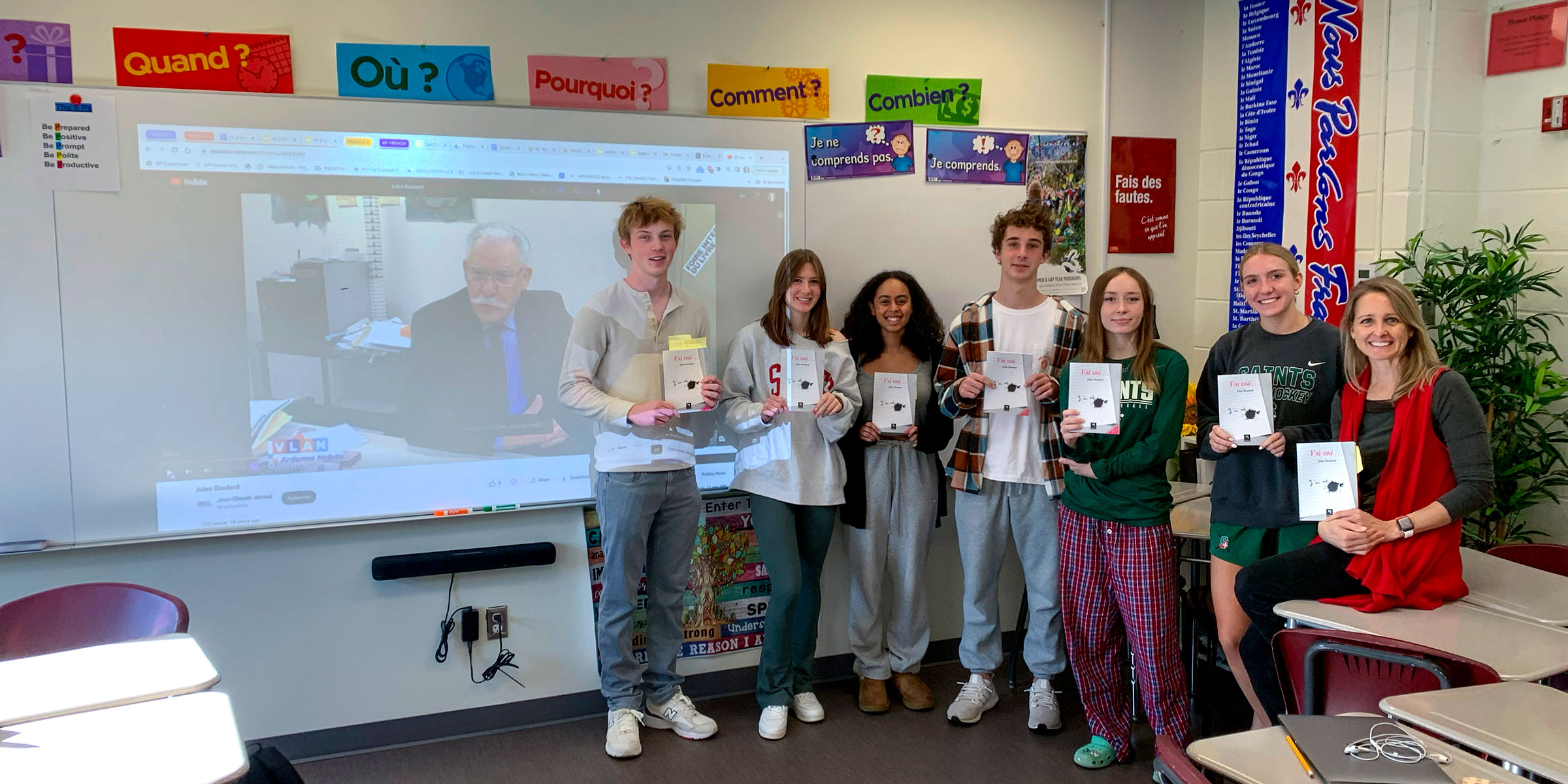
Making Powerful Literary Connections
AP French students correspond with Belgian writer Jules Boulard
By Melissa Ulsaker Maas ’76
In her senior year of high school, Upper School French teacher Kim Scott was an exchange student in Belgium. For the last six months of her year abroad, her principal and host father was writer Jules Boulard. It was a magical experience for Kim. Over the years, she and Jules have stayed in touch and Jules has sent Kim many of his books. This past summer, Kim planned a trip to Belgium with her family, including a visit with Jules. Before going, she decided to reread “J’ai Osé!” (“I Dared!”), a short novel he wrote in 2014 and for which he received a literary prize. “It’s a great piece of literature,” Kim says. “I realized that I could easily incorporate it into my AP French Language and Culture curriculum. I’ve been looking for something new and refreshing for the course.” Knowing she was going to meet with Jules, she decided to talk with him about a collaboration.
Kim and Jules had a lovely conversation about his life as a writer. “We had an in-depth talk about “J’ai Osé!” and the main character and how people received the book,” Kim says. “I shared a bit about the course and we discovered it would align beautifully with one of the thematic units called Personal and Public Identities.” Jules offered to be part of the discussion with Kim’s class, and she couldn’t wait to share the magic she had experienced with her students.
“From this experience, I will cherish my students’ thoughtful inquiries and their appreciation for learning through this meaningful novel and written correspondence with my dear friend, Jules Boulard.”
~ Kim Scott
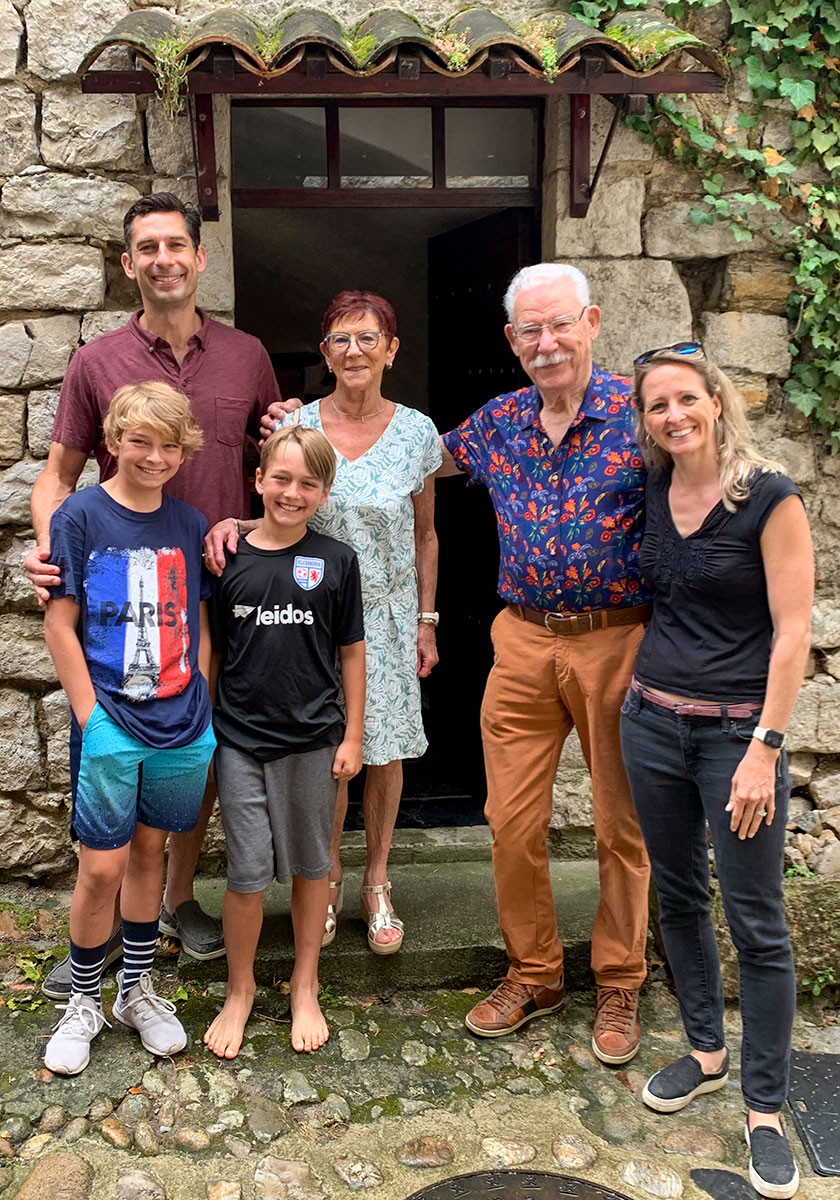
Visiting Jules Boulard in Belgium this past summer. From left to right: Jake Scott ’27, Joe Scott, Charlie Scott ’30, Claudine Boulard, Jules Boulard, Kim Scott
Jules wrote the book for a literacy organization for adults. “They were looking for a book that would target adults who were struggling with their reading,” Kim explains. “With that in mind, Jules created a work of art that begins with very basic vocabulary, but progresses in its range of words and grammar over the course of the story.”
The main character, Marie Cerise, is a woman in her early 40s who lost her grandparents in a bombing raid during WWII—a trauma that left her mute at the age of four. It takes her more than 15 years to speak again, and she decides to write about her experience in a journal. Through her journal entries, Jules takes Marie and the reader on a journey of self-discovery and resilience. The more Marie writes the more courageous she becomes.
“For me, Marie is a symbol of what we call ‘resilience,’ the capacity to be reborn,” Jules wrote to Kim’s students. “Wars are terrible events that mark our entire life. My grandparents who experienced the first world war talked about it every day until their death. I was a child during the second world war and I sometimes still dream about it. The years following the war were sometimes harder, more difficult while waiting for everything to be reorganized.”
Through her writing, Marie is able to identify the challenges she has had and work through them. “As we read the book in class and discussed her challenges, my students were keeping their own personal journals,” Kim says. “The takeaway is that writing is an excellent remedy for resolving our own issues—it helps us to get outside of ourselves and look at things objectively.”
As they read “J’ai Osé!”, Kim’s students made annotations and then formulated questions for Jules and he responded to each of them. Their questions ranged from asking how he chose and developed his characters to why he chose to write from the perspective of a woman; to why he chose fruits and animals as symbolic representations of Marie’s emotions, thoughts, and development; to whether or not his own history during World War II had a similar impact on his life as Marie’s did on hers.
Like Marie, who found courage writing about her life, Jules finds comfort sharing his stories. When asked where he finds the ideas for his novel, Jules replied, “I was lucky to have parents and especially grandparents who told me many things that I remembered because they fascinated me so much. And today I still regret not having asked them more questions… Too late! There are things I will never know. One of my objectives is therefore to transmit what they said about what they experienced and to express all the admiration I have for their courage and their will to live.”
Kim’s students all agree that having access to Jules while they were reading “J’ai Osé!” was a powerful and amazing opportunity that enriched their experience. Garrett Butler ’24 summed it up, “Having a personal connection to the author through our teacher added another layer of depth, as we had more insight into the author’s background, motivations, and the context in which “J’ai Osé” was written. Having the opportunity to ask Monsieur Boulard questions was fascinating and contributed to having profound and meaningful dialogues in class.”
And ultimately, the connection with Jules Boulard may even have inspired some new writers. “I believe writing and reading are powerful outlets for thoughts and emotions,” James Brabham ’24 said. “Although I’ve never kept a journal of my own, this experience has compelled me to do so!”

